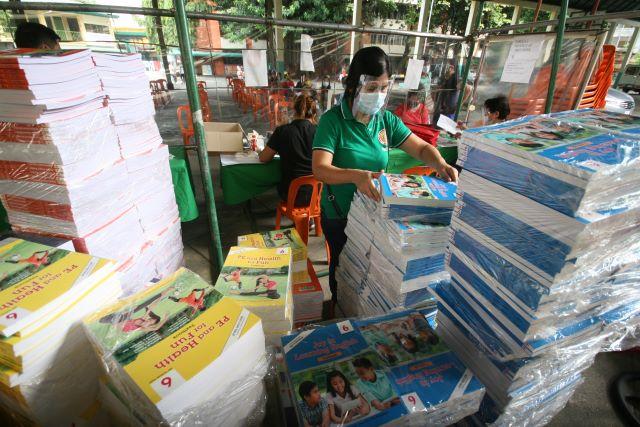Angara eyes shortening process of textbook procurement, delivery

Education Secretary Sonny Angara on Wednesday said he aims to further cut the processing time for the procurement of textbooks and their distribution to schools nationwide to less than a year.
Angara, who assumed office as the new secretary of the Department of Education (DepEd) two weeks ago, said that it used to take three years to print and deliver a textbook for learners, until his predecessor, Vice President Sara Duterte, shortened it to one year.
“It takes a year to do the manuscript, another year to proofread it and to send it out. And then another year, iba-iba pang bidding ‘yun [it has to undergo different biddings]. So, my predecessor narrowed that down to one year,” he said during the launch of the Brigada Pagbasa Partners Network (BPPN).
“But I think, we can probably do better still and we'll continue pushing the envelope,” he added.
Angara said the DepEd will study how it could further improve the textbook procurement and delivery given its legal implications, such as the procurement law.
He, however, assured that DepEd, under his leadership, will try to further reduce the process period to less than a year.
“I would like to think so, pero hindi ko pa sure. Pero definitely, ‘yan ang utos ng Pangulo sa kanyang State of the Nation Address na error-free dapat at on time, so ‘yun ang sisikapin natin,” he told reporters in an ambush interview.
(I would like to think so, but I'm not sure yet. But definitely, that is the President's order in his State of the Nation Address that it must be error-free and on time, so that is what we will strive for.)
In its year one report, the Second Congressional Commission on Education (EDCOM 2) found that for the past decade, even if the budget was available, textbooks were not being procured on time. Essential educational materials were not on students’ hands when needed, hindering effective learning and teaching.
Citing data by DepEd’s Bureau of Learning Resources, the commission said that since 2012–when the K to 12 program was implemented–up to 2023, only 27 textbooks had been procured for Grade 1 to Grade 10.
Specifically, only Grades 5 and 6 had their textbooks completely procured for the following subjects: Araling Panlipunan, English, Edukasyong Pantahanan at Pangkabuhayan (EPP), Technology and Livelihood Education (TLE), Edukasyon sa Pagpapakatao (ESP), Filipino, Math, Music and Arts, Physical Education (PE) and Health, and Science.
Grades 4, 8, 9, and 10 had textbooks procured only for one or few subjects, while Grades 1, 2, 3, and 7 had none at all.
Admitting mistakes
Angara also lamented that DepEd has long been responsible for the fact that many students still do not have access to textbooks even at this point in time.
“Wittingly or unwittingly, kami ‘yung nagkasala dito kasi [we were at fault here because] we did not deliver the books on time. We did not build the classrooms. We did not create the learning environments. So, I think that's the initial admission that we must face or we must admit—na kami ‘yung nagkamali dito [we were in the wrong here],” he said.
“And so, going forward, we cannot do things the same way. And we have to build on what was done before us, if there were reforms before us,” he added.
The EDCOM 2 earlier urged DepEd to consider procuring textbooks that are readily available in the market rather than having publishers develop new ones.
The commission stressed that these delays in the development and distribution of textbooks have been a “long-standing concern” in the basic education sector, dating back three decades ago.—AOL, GMA Integrated News




